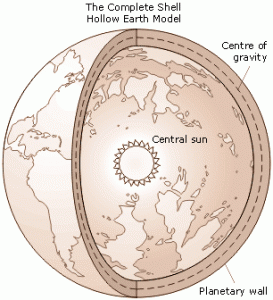Kool Keith on Writing
I read an interview with Kool Keith once where somebody asked him about his vocabulary, and he gave a list of 60 words that rhyme with orange. Every time writers want to sound like they’re saying something, they say why some rule someone else said is wrong. It’s all wrong, even the wronging of the wrong, even this paragraph.
Here’s some advice from Keith on how to do a making:

“When I say ‘I get all up in your ass,’ I mean that my rap is like combat, like anal combat.”
“Leave the 70s and the 80s alone. And the 90s.”
“I’mma stay right here with the roaches and the gorillas, I don’t want to move anywhere, I’m just gonna stay right here.”
“You been rappin for 20,000 years / And you ain’t got your fuckin deal yet? / What the fuck / Don’t take your problems out on me / And the rest of you muthafuckas / Walkin around lookin like/ some old alien niggas / Muthafucka, I pull your face off / ’bout to show you what the fuck you look like / Cause you keep it real / Too real muthafuckin broke / 2001 / Nobody was sayin that shit / when I was payin for them / fuckin hot wings / Hope you burn your fuckin lips”
“Like I’ll get open on somebody’s project like they will start their album off with 4 good beats, but they’ll make a mistake. They ll put a remake here in the middle of the album, two remakes and that turns me off right there.”
“I didn’t buy my computer yet. I heard the Internet is very powerful.”
“I seen rap come from a street pole and lamps in the street.”
“I’m not against women. I’m not against men. I just write about me telling my side of how I would say something.”
and all of the lyrics to “I Don’t Believe You”
Gee, This is Awkward
 Your piece in Lit Mag X was all Oil Glow/Lick-Stick Skillz. I fell in love. So I asked you to submit to a Mag I edit, Lit Y. You did, kind soul. But that piece is only good, not Oil Glow/Lick-Stick Skillz. Now what do I do? Why?
Your piece in Lit Mag X was all Oil Glow/Lick-Stick Skillz. I fell in love. So I asked you to submit to a Mag I edit, Lit Y. You did, kind soul. But that piece is only good, not Oil Glow/Lick-Stick Skillz. Now what do I do? Why?
Writing Prompt: Vanish
 Say you’re writing about someone who is not around. Say you are writing about someone that some others have lost in one way or another. (There are so very many ways of losing someone.) As I see it, you have two ways of approaching this.
Say you’re writing about someone who is not around. Say you are writing about someone that some others have lost in one way or another. (There are so very many ways of losing someone.) As I see it, you have two ways of approaching this.
The first image illustrates one way of doing it. (Image by Charles Cohen.) Someone can disappear and leave a gaping hole shaped just like themselves.

This second image is by a Seattle artist named John Haddock. It is also a picture of someone who is not there. Haddock takes images from the web—pornographic images—and erases the nude figure from the image, replacing it by drawing the patterns of the bedspread, the color of the wall, the features of the room. After the character has been erased, the hole has been filled in.
Try them both. Write something about a person who is gone. In one version, leave the gaping hole. In the other, fill the hole in so it is almost like the person was never there.
HOW TO DO THINGS WITH WORDS

this is john austin
one of the most important books to me is HOW TO DO THINGS WITH WORDS by j.l. austin. it is a book about language and how certain utterances transcend the simple description of things or the world. after reading this book, it is easier to understand other people and the import of certain conversations. the book is based on lectures austin gave at, i think, harvard university. i am going to read it for a third time and try to provide a summary and critique of each lecture in the upcoming weeks. if you a familiar with language philosophy, performative utterances or how derrida has used these theories to augment his own, feel free to help me. the main thrust of the book is that in addition to describing things (constative language, or “my shirt is red.”), language can also produce realities. for instance, when saying “i do” at a wedding, if applied to the right person, in the right situation, with no obstacles denaturing the situation, an effect is produced by the utterance. forgiveness is another example. i think many of the ideas in the book could be applied to comment threads here. for instance, if i call someone a “dipshit” in a comment thread, on account of not knowing the correct placement of a comma, and then i apologize, i have used a “behabitive” utterance. a behabitive characterizes behavioral responses. in the moment i apologize, i place myself and the other person in a situation which can either be, according to austin, not true or false, but “felicitous” or “infelicitous” based on the correct execution. my apology must be worded in such a way as to signify true regret, i must not be sarcastic, i must not whisper it quietly or not type it, and the other person must accept it, etc. i can’t remember if i wrote a post on this before, but i will try to do it more in depth here. i think this kind of book is really helpful for dealing with other people, as it uncovers the unstated context for many “language games.” thanks for reading this.
How to fucking format a multi-page poetry/flash manuscript in MS Word
On a PC, hit CTRL-Enter. On a Mac I think it’s more difficult. You have to go to Edit > Insert Page or something like that.
Please, don’t hit return a million times. I will kill you.
“At least I was able to penetrate into the mysterious and magical belly of a movie star”

As a novel about sexuality, told in what Mailer had thought was a style imbued with sexual energy, The Deer Park had offended his original publisher, who dropped it in page proofs; ironically, Mailer found himself changing some of the phrases to which the publisher had objected, not on moral but on aesthetic grounds. “Fount of power” for female genitalia became “thumb of power.”
Mike Tyson on Writing
No such thing as great writing advice from writers. I learned most from candy and smothering and sitting on my ass.
As well, Mike Tyson’s got some knowledge:

“My main objective is to be professional but to kill him.”
“There are nine million people who see me in the ring and hate my guts. Most of them are white. That’s okay. Just spell my name right.”
“One morning I woke up and found my favorite pigeon, Julius, had died I was devastated and was gonna use his crate as my stickball bat to honor him. I left the crate on my stoop and went in to get something and I returned to see the sanitation man put the crate into the crusher. I rushed him and caught him flush on the temple with a titanic right hand he was out cold, convulsing on the floor like a infantile retard.”
“I really dig Hannibal. Hannibal had real guts. He rode elephants into Cartilage.”
“I try to catch him right on the tip of the nose, because I try to push the bone into the brain.”
“I could have knocked him out in the third round but I wanted to do it slowly, so he would remember this night for a long time.”
“I can sell out Madison Square Garden masturbating.”
“I’m on the Zoloft to keep from killing y’all.”
A Sunday Writing Prompt: Beneath

I found myself stuck yesterday, looking at the last few lines of a scene, sure about where the story goes eventually, but not sure where it was supposed to go right then.
I decided to reexamine the scene I had written from a different angle. I decided to look at what was going on beneath the scene.
And I don’t mean metaphorically. I went beneath the scene and decided to try to describe what was happening within a character’s foot. Maybe I’ll keep it. Maybe I won’t. Something happened, though.
Here’s the exercise: find a scene or write a scene. Read it or reread it. Start again. Describe what is happening beneath it. The apartment below. Under the dirt. Deep within the lower extremities of a character’s body. At the opposite end of the Earth.
Maybe that scene is more interesting. If so, throw out the original. Maybe the scene makes meaning in the juxtaposition between itself and the scene above it. Incorporate one into the other. Maybe nothing will be there. Hey, at least you spent some time writing. Good for you.
